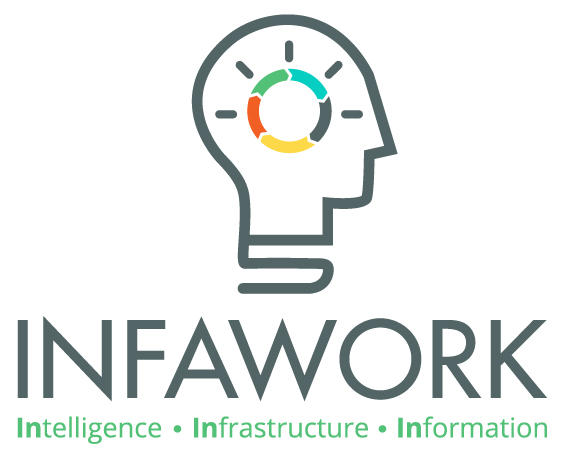A Key to Business Growth: Embracing an ERP System Enterprise Resource Planning (ERP) systems, like INFAWORK, is transformative tool that is a key to business growth as they can reshape how businesses operate. By centralizing data and automating operations, ERPs offer a comprehensive suite of benefits that enhance efficiency, reduce costs, and foster growth. These systems integrate various functions across an organization, allowing for seamless information flow and more strategic decision-making. As businesses strive to remain competitive and adaptable, the role of ERP systems becomes increasingly crucial in achieving long-term success. Key Takeaways Understanding ERP Systems and Their Core Functions What is an ERP System? Enterprise Resource Planning (ERP) systems are integral to modern businesses, centralizing data and operations into a unified platform. This integration facilitates streamlined processes and improved decision-making across various departments. Core Functions of ERP Systems ERP systems encompass numerous modules, each designed to support specific business functions such as finance, procurement, and manufacturing. These modules ensure efficient workflow and data consistency across the organization. Benefits of Integrating an ERP System Integrating an ERP system into a business architecture offers significant advantages, including enhanced operational efficiency and better strategic planning. The system’s ability to provide a single source of truth enhances transparency and aids in more informed decision-making. Enhancing Business Growth with an ERP Streamlining Operations By integrating various business functions into a single platform, ERP systems facilitate a seamless sharing of data across departments. This integration helps in streamlining operations and enhancing overall business efficiency. For instance, the automation of generating purchase orders and tracking inventory reduces time and minimizes errors, leading to more streamlined operations. Automating Manual Processes ERP systems excel in automating manual, repetitive tasks which not only saves valuable time but also enhances accuracy. Automation extends across various business functions from inventory management to financial reporting and order fulfillment. This automation helps businesses reduce labor costs and improve productivity, which are crucial for operational efficiency. Improving Decision-Making With ERP systems, businesses gain better visibility of employee productivity and can analyze scenarios more effectively. This enhanced visibility and unified process analysis aid significantly in improving decision-making. Real-time data provided by ERP systems ensures that decisions are made on the most current information available, which is vital for maintaining competitive advantage and operational efficiency. Boosting Collaboration and Communication Centralized Data Management Centralized data management through an ERP system ensures that all team members have access to the same information in real-time. This central repository of data eliminates inconsistencies and ensures that everyone is on the same page, enhancing the efficiency of collaborative efforts. Enhanced Interdepartmental Collaboration By integrating various departmental functions into a single platform, ERP systems foster a culture of collaboration. Teams can easily share insights and resources, which leads to more cohesive and informed decision-making processes. The ability to increase communication and streamline operations significantly boosts productivity and operational efficiency. Real-Time Information Sharing Real-time information sharing enabled by ERP systems allows for immediate updates and access to the latest data across the organization. This capabilityensures that all team members are informed of any changes or updates, which is crucial for maintaining operational continuity and quick response to any arising issues. Cost Reduction and Financial Management Lowering Operational Costs ERP systems significantly lower operational costs by optimizing business processes and improving resource allocation. The integration of ERP systems allows for a more effective spread of resources, which can reduce the need for excessive labor and minimize overhead costs. Key areas of savings include production, procurement, and IT staff costs. Improving Financial Reporting ERP systems enhance financial reporting by providing real-time data and comprehensive analytics. This allows businesses to monitor financial performance continuously and make informed decisions quickly, leading to better financial management and compliance. Optimizing Resource Allocation With ERP systems, businesses can achieve maximized planning and resource management. This leads to reduced rush orders, over-production, and over-ordering, which are often costly. The system’s ability to forecast and align resources with business needs ensures optimal use of every asset, preventing unnecessary expenses and enhancing overall efficiency. Increasing Visibility and Control Over Operations 360° Visibility into Business Operations Greater visibility across all business operations is a fundamental advantage of ERP systems. This comprehensive insight helps managers make informed decisions by providing a clear view of all activities, from production to distribution. It also increases supply chain visibility, allowing for more precise planning and execution. Identifying and Addressing Issues Promptly With real-time data at their fingertips, businesses can quickly identify and rectify any operational issues. This prompt response not only saves time but also prevents minor problems from escalating into major disruptions. Enhanced Supply Chain Management ERP systems streamline the entire supply chain, making it more efficient and responsive. By integrating various functions such as inventory management, order processing, and logistics, businesses can ensure smoother operations and better coordination among different departments. Driving Business Growth and Scalability Supporting Business Growth Fast-growing businesses, regardless of the industry or size, require a system that is scalable by design and engineered for rapid growth. To achieve this adaptability, fast-growing companies turn to cloud ERP to streamline financial and business processes, allowing for sustained growth. Adapting to Market Changes If your business has rapid growth plans, a cloud ERP system will provide the most scalability. Since cloud systems run on remote servers, it’s a cinch to add the extra resources needed to keep the solution running smoothly — far easier than handling that yourself. That reduces the work put on IT and can eliminate the need to hire a team of technical experts. Long-Term Strategic Planning The beauty of leading ERP systems is that you can use the functionality you need now while leaving the door open to add more capabilities down the road.In that sense, the system can scale with your business as it grows and evolves. You can also add new users as your teams grow. There’s no need to get a new ERP solution just because your business has changed — even in big ways — since you implemented the existing system. Industry-Specific Advantages of ERP Systems Customization for Different Industries ERP systems are..


